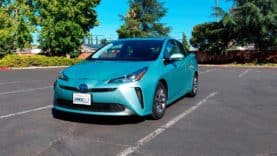Building digital society from scratch. Is e-government our future?
Estonia is a small post-Soviet country of about 1.3 million people, located in Northern Europe. However, it’s famous not for its size or population. Being called “the most advanced digital society in the world,” it now runs 99% of all government services online, becoming the first e-government country on the planet. In 2014, Estonia introduced e-residency — another online government program, which allows everyone to become an e-resident of Estonia and start a business in the EU, no matter where you were born or where you physically live.
The concept of e-government is not entirely new. However, governments across the world generally tend not to rush in adopting it, even though it could save taxpayers billions and help rebuild economies. Why? Because it would also mean cutting lots of bureaucracy out of the process and making government’s work a lot more transparent, explains Bradley Tusk, an American venture capitalist, former deputy governor of Illinois, and first political advisor for Uber. In our second interview, we discussed the main concepts of digital society and how to build it from scratch if we take another European country, Belarus, as an example.
Tusk is leading the effort to bring mobile voting to the United States. So far, over 18 counties have conducted successful pilots, including voting in this year’s US presidential election. If you didn’t have a chance to watch our first interview about the concept of mobile voting and other major trends of the post-pandemic world, check it out here.
Will the US be moving closer to building a digital society as we move through the global pandemic that’s changing our way of life? We discuss this and much more in our new video.
Do you have anything else to add or share? Sign up for a free account, and post directly to our LiveFEED!
If you haven’t subscribed to our YouTube channel yet, you can do it by clicking here.
Featured photo by Matthew Henry





























